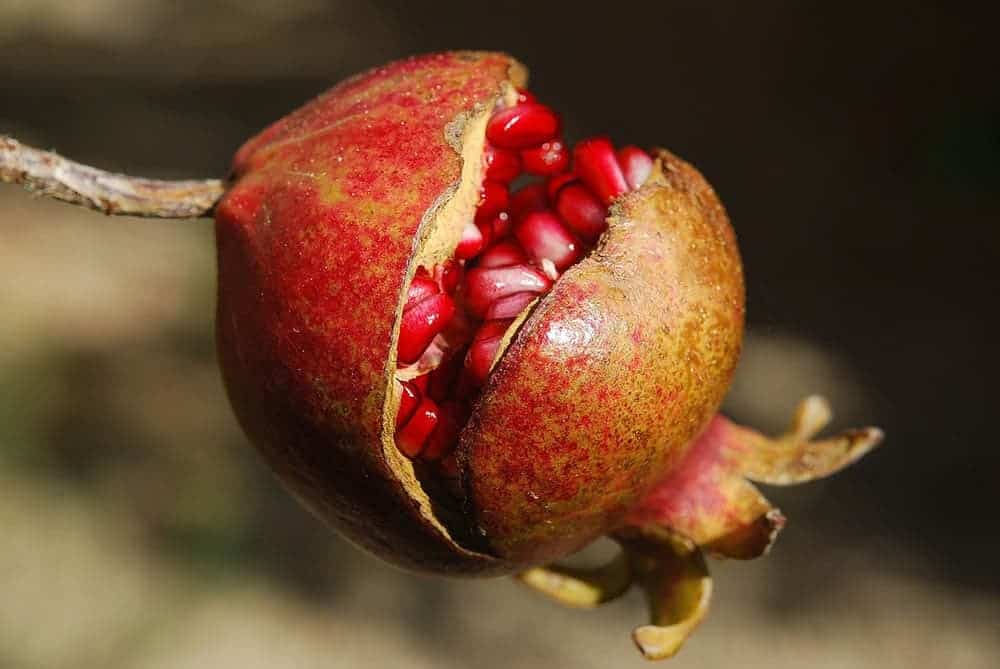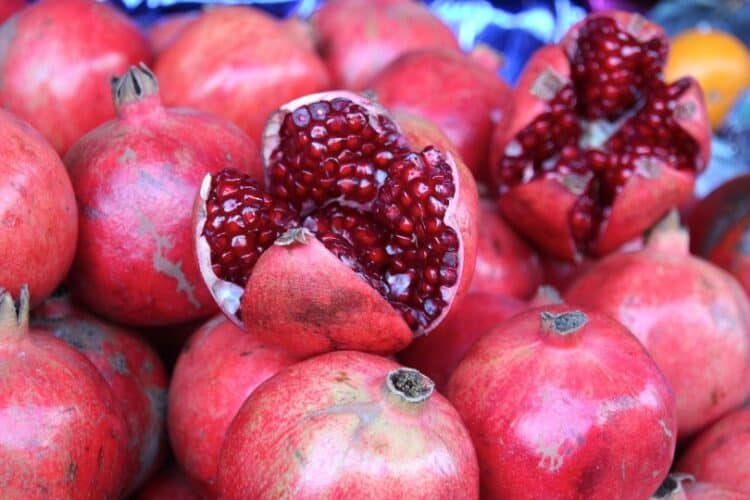Though dogs don’t really need to eat fruit and vegetables, they sometimes take a shine to the darndest things. If you just caught your dog wolfing down a piece of pomegranate, you might be worried about the potential consequences or if it’s actually any good for them.
You can relax—pomegranates are not toxic to dogs, but there’s a lot more to it than that. On the bright side, a little pomegranate fruit is fine for dogs now and then and some health benefits have been linked to pomegranate peel extract. On the other hand, raw pomegranate should not be fed in large quantities and certain parts of it should be avoided altogether.
In this post, we’ll take a closer look at the pomegranate fruit, explore whether or not it’s good for dogs, and how it can affect them.
Is Pomegranate Safe for Dogs?
If you’ve fed your dog a piece as a treat or they got a little too enthusiastic when some of your pomegranate juice splashed onto the floor, there’s no need to worry. A bit of pomegranate now and again isn’t going to harm your dog.
According to one study, pomegranate peel extract can be even beneficial for dogs’ digestive systems. As such, some dog treats and dog health supplements contain pomegranate extract. Another study suggests that pomegranate peel extract may be beneficial in the treatment of canine cardiac disease.
That said, raw pomegranate shouldn’t be fed in abundance—too much of this fruit can upset your dog’s stomach. You should also avoid feeding certain parts of the pomegranate, especially the leaves, seeds, and peel.
The pomegranate peel and seeds are pretty tough, which could cause your dog difficulties with digestion. Additionally, pomegranates are high in tannins—too many of which may cause gastrointestinal irritation. If your dog has eaten quite a few seeds or a whole peel and starts to appear sick, contact your vet and get them checked out.

How Should I Feed Pomegranate to My Dog?
If your dog seems to enjoy pomegranate, you can feed a bit of the fruit as an occasional treat, making sure to stay away from the leaves, seeds, and peel.
One way to ensure your dog safely eats pomegranate is to feed it in treat form. Dog treats containing pomegranate peel extract are easy to find online, and you may even come across them in your local pet store. Follow the feeding guidelines on the back of the packet to find out how many would be appropriate to feed per day.
What Is a Dog’s Regular Diet?
As omnivores, to remain healthy and active, dogs need a diet that contains all the nutrients they need to thrive. Dog food should contain proteins, amino acids, essential fatty acids, carbohydrates, vitamins, and minerals. High-quality commercial dog food or a professional dog meal preparation and delivery service can provide all of these things.
Depending on your dog’s size, the amount of calories the dog eats per day differs. For example, an active, adult 10-pound dog would eat around 404 calories per day on average, whereas a much larger dog at around 90 pounds would need about 2,100. Puppies and senior dogs require different amounts of calories, too, so refer to your dog food brand’s feeding guide for more information.
Final Thoughts
To sum up, pomegranate fruit isn’t toxic to dogs, but raw pomegranate should only be given as the odd treat now and again, not as a regular part of your dog’s diet. Too much pomegranate fruit, too many pomegranate seeds, and difficult-to-digest pomegranate peel can give your dog an upset stomach.
A great alternative to feeding raw is to give your pooch dog treats containing pomegranate. If you’re especially dedicated, you could even check out the abundance of pomegranate dog treat recipes online that you can whip up at home!
Featured Image Credit: Pixabay














